Nestled in the scenic foothills of the majestic Western Ghats and under a wispy carpet of misty clouds in the sky, lies the serene city of Coimbatore. At the heart of this city lie its diligent and cultured people. On a cool November morning, an eminent gathering of informed individuals lit an inspiring spark in their hearts and minds.
On November 1st was the first time I visited the contemplative city rooted in its Tamizh heritage for being a part of the life-changing Western Ghats Literary Festival, 2025.
Day One
The event was held at the elegant Grand Regent Hotel, Coimbatore and the welcome was extremely warm. The event was ceremoniously opened with the lighting of the lamp which was the symbolic inception of the sacred yajna that this event was.
The moment the event commenced with the auspicious invocation of Shri Ganesha by the melodious Shri Shankhar Narayanan, our hearts were touched and our minds were opened, setting the stage for the Lit Fest to shine.
Following this, the eminent Shrimati Shefal Vaidya ji, the curator of the festival, took the centre stage to deliver the director’s address, she powerfully highlighted how the event was a time and place where the knowledge shared and spread was in the service of Dharma. Her words clearly underlined the mission to make Kovai i.e. Coimbatore, “the consciousness capital of Bharat’s literary map”, striking a deep chord within me.
From Shri Dushyant Shridhar ji’s explosive keynote address, intellectually and humorously engaging the assembled astikas on the timeless message echoed in our eternal Itihasa to the gripping panel discussion among learned speakers on how Acharya Chanakya’s Arthashastra is a valuable guide to developing self-awareness and national power, we were glued to the floor before the delicious coffee break. A panel discussion on Swayambodha and Shatrubodha followed, stirring and awakening the innate spirit within the audience.
Shri M.R. Venkatesh ji and Sumedha Ojha ji’s discussion on the indigenous origins of democracy and statecraft in our motherland to Priyam Gandhi Mody ji’s address on how a resurgent India i.e. Bharat is finally emerging from the shadows cast upon its glory by some monumental blunders in its political past after Independence, opening our eyes to the value of our civilisational ethos. Smt. Priyam Gandhi Mody’s session, titled 'No Congress, No Nonsense,' brought to light the political realities of the past for the audience.
My personal highlight arrived when I got to launch my book, “Pallavas of Kanchipuram-Vol 1” at the hands of luminaries like Professor Dr. P. Kanagasabapathi ji and Shri Jaganathan S. ji, which was a great honour. I was and am extremely grateful to the Lit Fest for that stage that let me speak about experiences while writing the book and share interesting snippets on the Pallava epoch in Bharatiya and Tamizh history.
And then the stage was commanded by Shri Jaganathan ji and Shri Rithwik Subramanya ji when they launched the former’s book, “Operation Phoenix: Bharat Protocol, Rising from the Ashes”, which was met with rousing applause from the audience. I nearly finished that racy thriller later that night, but I am getting ahead of ourselves. I shall keep the review of the riveting book for my next article.
These launches were followed by the much-awaited launch of the book titled “Operation Sindhoor and the Spirit of Sacrifice”, by Wing Commander Sudarshan ji, which spoke of the national triumph of Operation Sindhoor achieved by our Bharat at the cost of lives sacrificed by our bravehearts who gave a befitting reply to the terrorism fostered on Pakistani soil.
When Swami Vigyananda ji and Swami Mitrananda ji showed us the value of Dharma guiding the Indian youth by appealing to their passion, they showed how they developed a guiding template for the youth of our motherland to foster national development along the lines of Dharmic principles.
Then came the meditative immersion of our minds in the performance of “Krishnam Vande Jagat Gurum," which beautifully wove our hearts with devotion, rhythm, and rasa with one complete performance.
When Shri Ashwin Sanghi ji’s name was announced and he walked onto the stage, the audience cheered and clapped soundly. As a first time author listening to his journey from being a successful business man to a renowned author was extremely heartening. When he explained that Shri Ganesha was the only deity who could balance and keep Devi Lakshmi and Devi Saraswati in one room, he figuratively encapsulated the message of the event in one mind-stirring address.
This was balanced by the high-octane keynote address delivered by the respected Lt. General Vinod G. Khandare ji, whose keynote address on Operation Sindoor and its stalwart defence of the ideals of Dharma solidified the sense of cultural and national pride in our motherland. This concluded the first day of the Lit Fest on a high note, which set our expectations high for the next day.
Day Two
The second day of the event got off on a resonating start when the Vidhyartis of Anaadi Foundation chanted Vedic hymns that announced the start of the literary and cultural festivities of the Lit Fest. The sacred invocation of Shri Ganesha by Shri Shankhar Narayanan ji grounded us in humility while lifting us with his melody.
The powerful keynote address by Major General Dr. Bipin Bakshi ji, reflecting on the evolving responses of Bharat to its defence challenges and threats. From cold starts to dynamic responses, Bharat’s military preparedness and national resilience were captured in his address as he unveiled the Dynamic Response Military Doctrine for the first time on public stage to rousing applause and cheers from the audience. Just like Shri Ram and Shri Krishna could herald truth and righteousness from a position of strength, so will Bharat be able to carve out its rightful place and utilise its soft power only from a position of power and strength.
He also unveiled his graphic novel based on the story of braveheart, Lt. Colonel Niranjan EK, a decorated NSG officer, who was martyred when leading an NSG bomb disposal squad, sanitising the Air Force Station after the initial Pathankot terror attack in 2016. The graphic novel was an attempt to capture the spirit of that noble sacrifice.
This was followed by an engaging panel discussion analysing the complex challenges posed by the modern information landscape. The speakers on the panel carefully dissected and explained the "outrage industry," noting how social media is being used as a medium and front to contribute to unrest and fear and wage a new form of information war, targeting the civilian population of Bharat. The discussion explored the tenets of Wokeism which poses a threat where it only bombards us with questions instead of providing answers.
Unfortunately, I did not have the honour of witnessing firsthand the rest of the second day’s events due to my personal commitments back here in Mumbai.
However, I did catch the live stream on Youtube where I watched Dr Suresh Sethuraman explain in simple terms how Bharat traded its value in gold with Rome and established itself as an ancient trading power to be reckoned with in the ancient world, the echoes of which still resound to this day.
I witnessed onscreen an intellectual panel discussion on how the wealth (artha) earned through Dharmic means is the core economic principle of Bharat that has kept the economic engine of Bharat running for millennia. Dharma and Artha go hand in hand and the prosperity and wealth accumulated by following Dharma is here to stay.
The emotional conversation of Shri Ashwin Sampathkumaran ji with shrimati Anuradha Goyal ji moved me when he explained the value of our Gau Mata and the inextricable place she holds in our Indian society. It nearly brought me to tears when he explained how unspeakable cruelty against cows emphasised that an attack on her was an attack on Dharma itself.
When I heard the striking panel discussion on the inspirational roles played by Indian women who History failed to record, but nonetheless refused to fade or be forgotten from our collective consciousness and memories, it moved me to think how these accounts changed the way we view our historical narratives. History, while largely male-oriented changes how we view the legacy of these women, which even though unrecorded in our history books, is still celebrated in the whispers of our generations.
The keynote address of the Honourable Justice N Seshayee ji was a much awaited session in which the esteemed speaker explained to us that the Judiciary, an institution established to resolve our legal troubles should not be unnecessarily vexed by trivial issues which contribute to weighing down the already burdened arm of the Indian branch of Government and that to resolve the deep rooted problems in our legal system, we must mobilise social action and play our small but respective roles in resolving these problems.
The riveting panel discussion on how temples of Sanatana Dharma as living engines of Indian culture and traditions energise community engagement and how these institutions serve as representations of the Supreme Brahman whose very being is interwoven with Creation and who is Creation. Therefore, I realised that temples are nothing but microcosmic models of the great cosmic reality crafted by the Supreme Parabrahman.
After the small break, Professor Dr. P. Kanagasabapathi ji and author Shri Sandeep Singh ji brought clarity to our minds on the foundational philosophies of Bharatiya business practices like the ethical trade conducted by vegetable vendors in India, the concept of Shubh Laab and how it is ingrained in our collective mentality, like second nature. Further, they explained how western economic models have acknowledged their failure and harm posed to society and how it was Western Colonialism that caused the collapse of Bharat’s economic supremacy through systematic looting and exploitative business. Despite that, we have grown phenomenally well due to our inner resilience and native models of encouraging saving and application of funds.
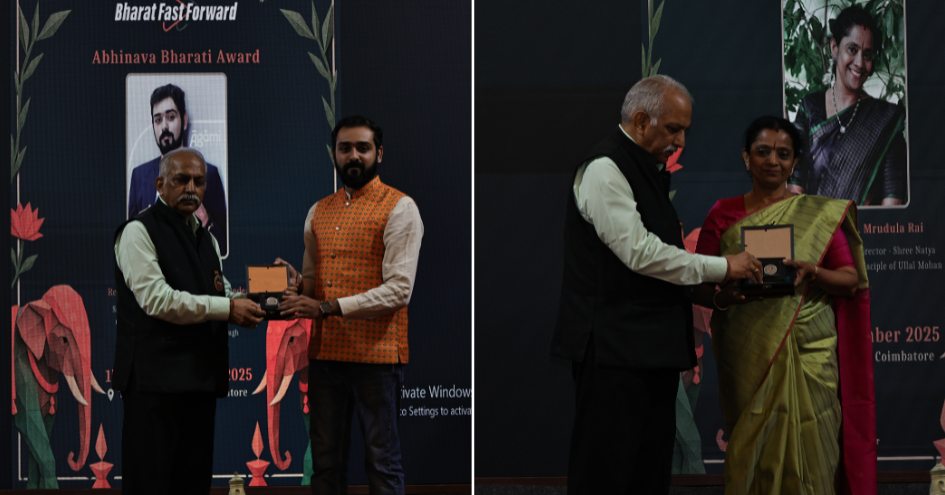
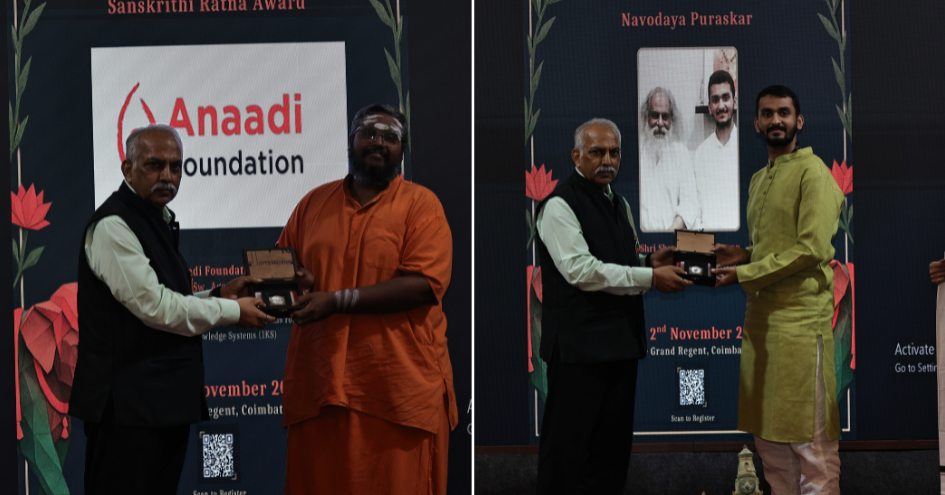
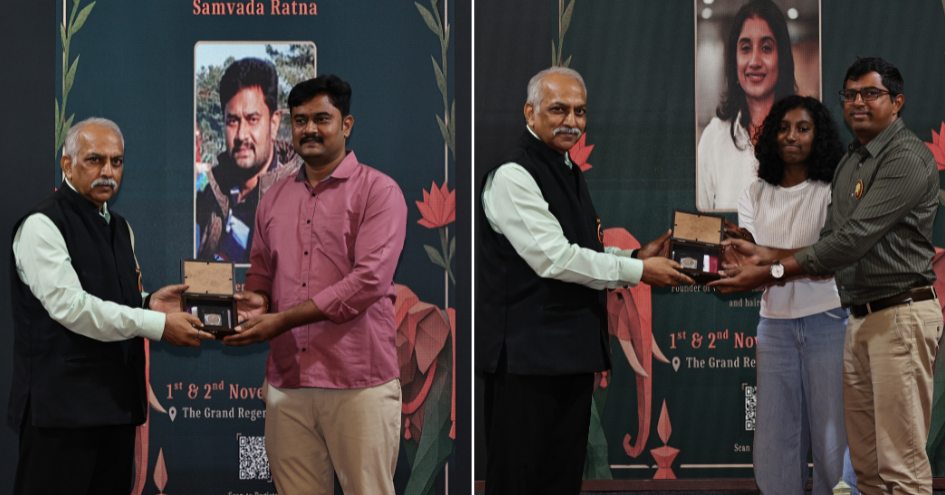
The Valedictory Ceremony featured the first edition of Verandah SMaRT Awards, celebrating the achievements and expressions of our eternal Sanatani culture across entrepreneurship, academia, performing arts and spiritual mentorship. The event was truly inspiring and informative, highlighting the work being undertaken by people who prove to be silent but relevant agents of social and cultural change.
A unique blend of gymnasium movements and yoga was performed by the students of Anaadi Foundation, leaving the audience in awe. And then came the celebration of another remarkable milestone: the commemoration of 100 years of the Rashtriya Swayamsevak Sangh and its Seva to the nation. Two books honouring this milestone were launched highlighting its significant contribution to our motherland and its development.
Acknowledgements
I thoroughly enjoyed my experience at the Lit Fest, where in essence, I felt honoured to be a part of this celebration of civilisational wisdom passed down through our ancestors and multiplied by the efforts of countless generations of Bharatiya people. The well-informed audience from different corners of Bharat and the world enriched the discussions of our learned speakers with their incredibly pertinent questions. It was so heart-warming to see the young students who had attended the event ask such fitting questions and take an ardent interest in our heritage and our national development. I thank the audience for being a part of this Lit Fest and forum that made it so worthwhile for authors like me to share my ideas and receive the sacred fruits of this grand yajna.
The audience were joined by an eclectic and extensive spread of fascinating books found at the magnetic book stall put up by Subbu Publications with eclectic paperbacks that were pounced upon by people of all ages. I personally thank Rithwik Subramanya ji for bringing the choicest books for our consumption!
I would also like to personally thank my dear friend Tushar Diwan for the commemorative mementos he recreated painstakingly which was awarded to the stakeholders who made this Lit Fest so successful in spreading its message of Dharma. I loved your designs on display at your stall.
I would like to express my gratitude to the organisers and volunteers who made this Lit Fest so engaging and informative and organised this event to be a landmark event
And last but not the least, I would like to give my sincere gratitude to Shri Jaganathan ji, Shrimati Shefali Vaidya ji and Shri Sandeep Singh ji whose valuable guidance and interaction with me will certainly make me a better author and contribute more to our society.
When I left the Western Ghats Literature Festival, I carried not just the excitement of a published author, but the satisfaction of a spectator who found his tribe. Just as Shrimati Shefali Vaidya ji said that while a festival ends, but a conversation doesn’t, I believe with conviction that this Lit Fest’s spark of inspiration lit in the minds of our people will spread and become an integral part of the Sanatana Dharma’s eternal fabric
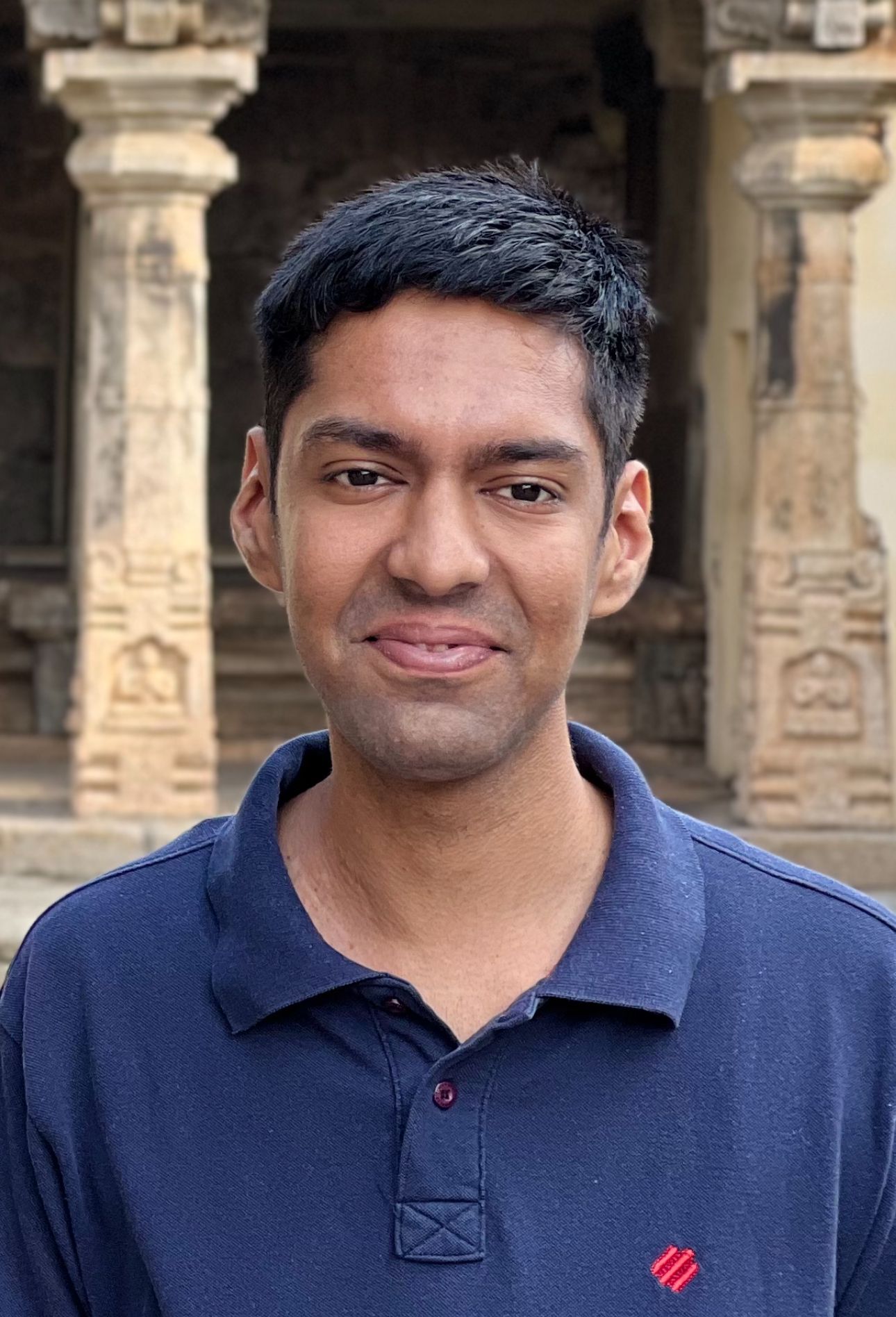 Vignesh Ganesh is a lawyer and writer. He is interested in ancient history and Itihasa and this interest culminated in his first book, "The Pallavas of Kanchipuram: Volume 1", which he co-authored with Mr. K. Ram, a fellow enthusiast of Indian history and culture.
Vignesh Ganesh is a lawyer and writer. He is interested in ancient history and Itihasa and this interest culminated in his first book, "The Pallavas of Kanchipuram: Volume 1", which he co-authored with Mr. K. Ram, a fellow enthusiast of Indian history and culture.
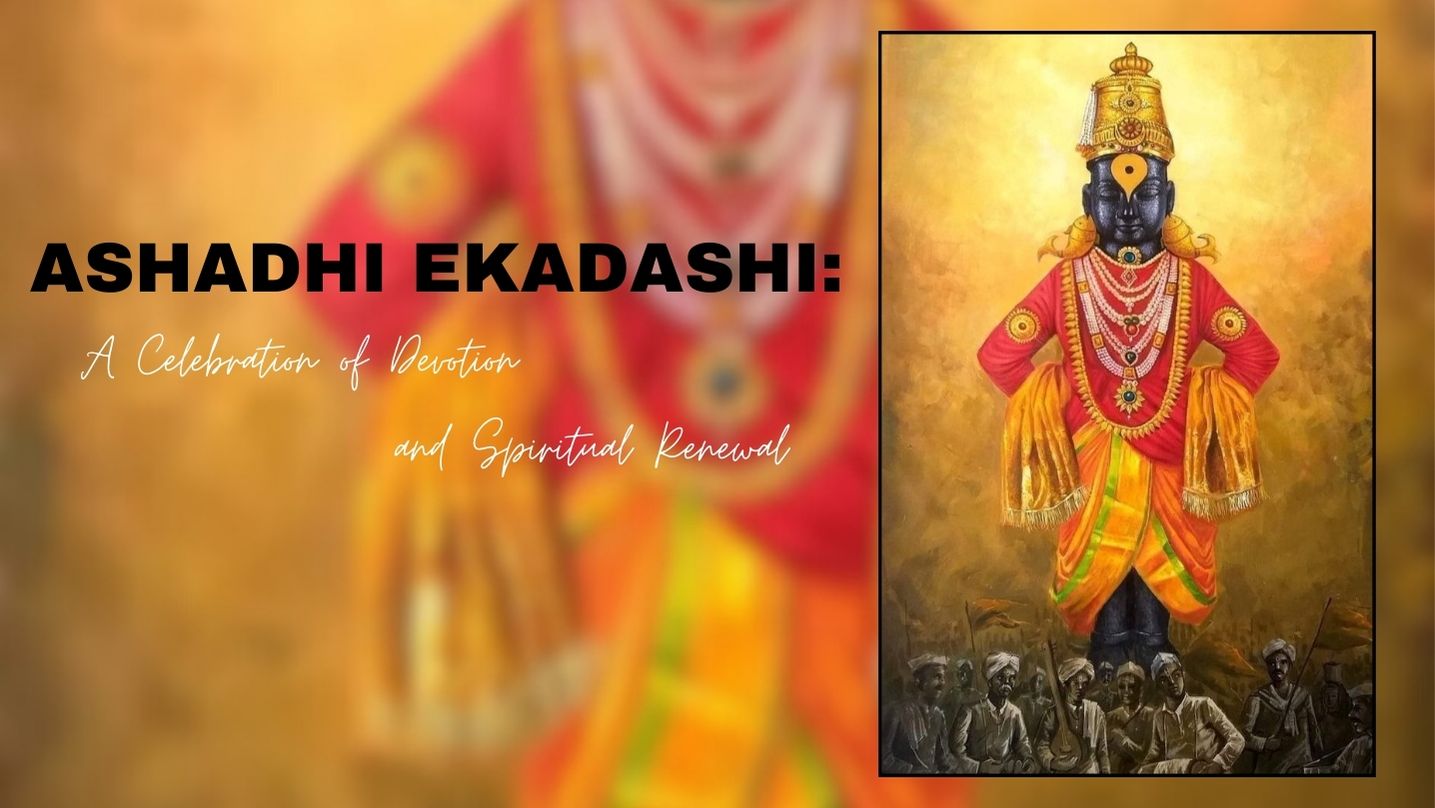
Ashadhi Ekadashi, also known as Shayani Ekadashi, falls on the 11th lunar day (Ekadashi) of the bright fortnight (Shukla Paksha) of the Hindu month of...
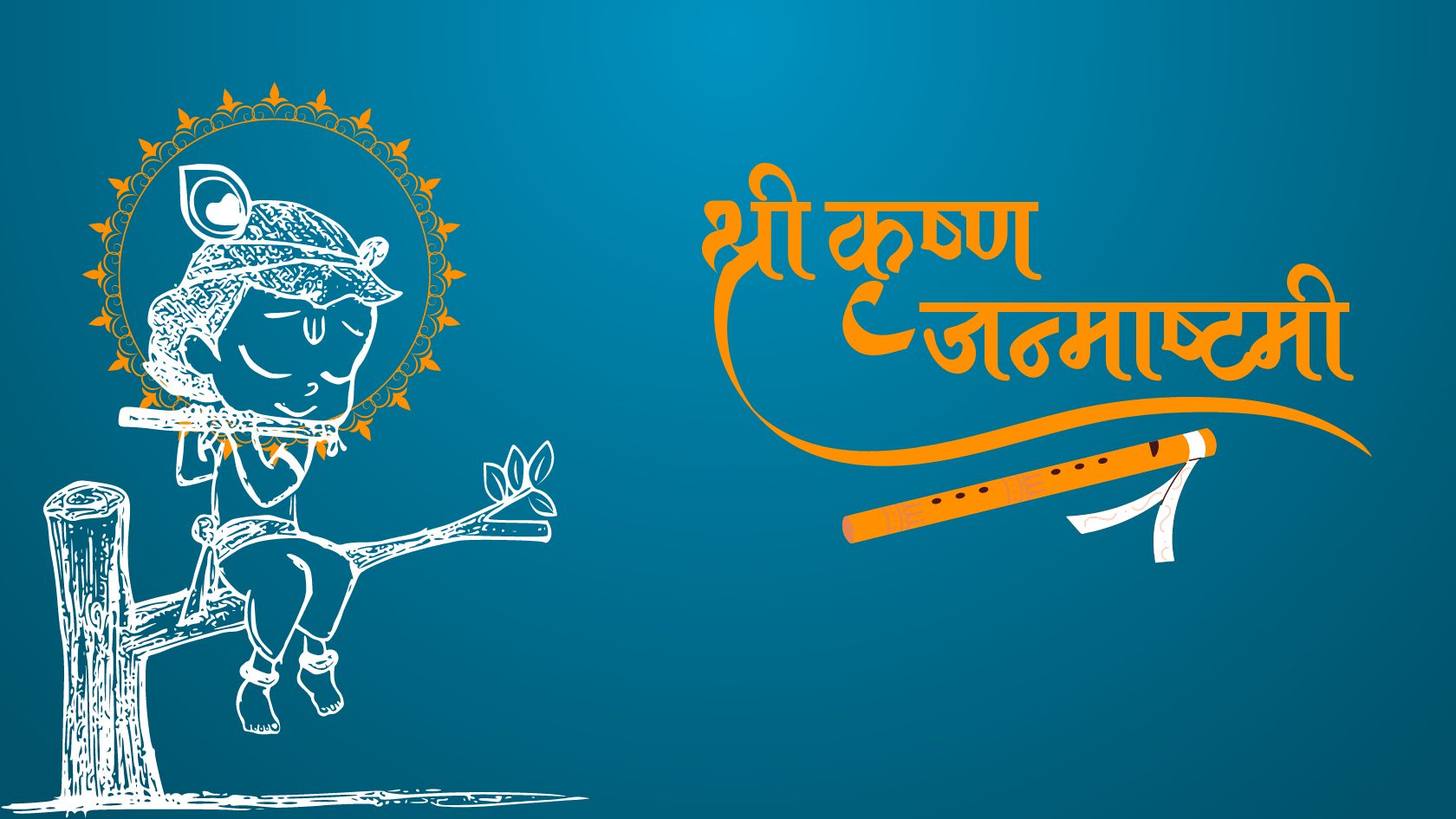
Every year, as the monsoon rains dance on the fields of India, an ancient story unfolds in the hearts of millions. It is the story of Krishna, the bel...
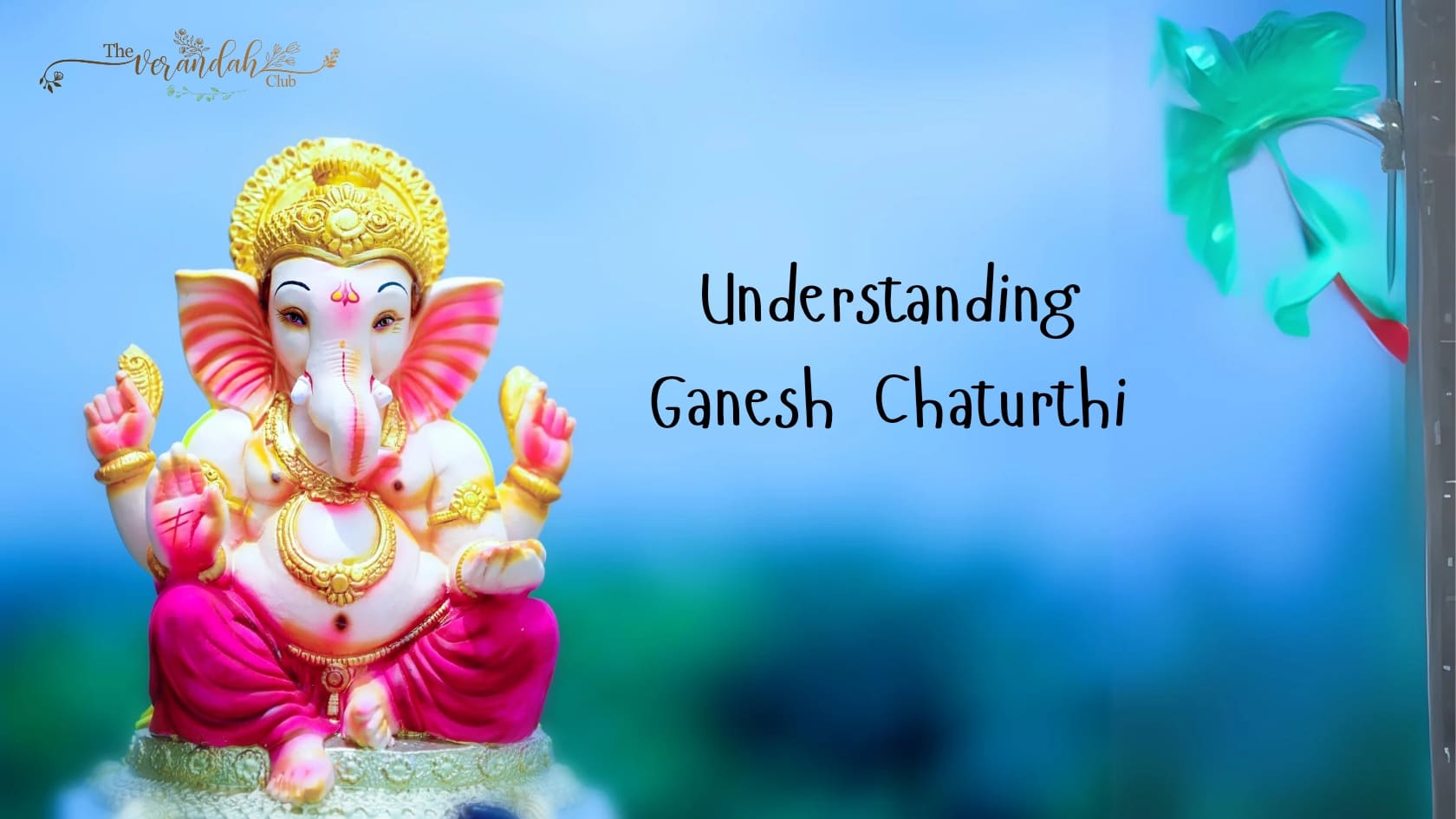
Ganesh Chaturthi, also known as Vinayaka Chaturthi, is a significant Hindu festival that honors Lord Ganesha, the deity revered as the remover of obst...